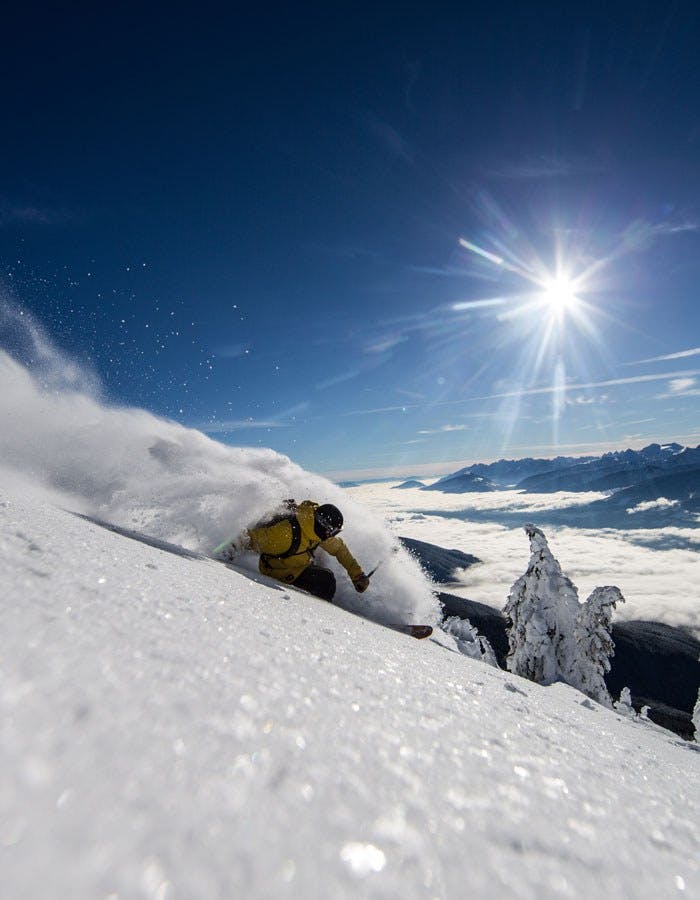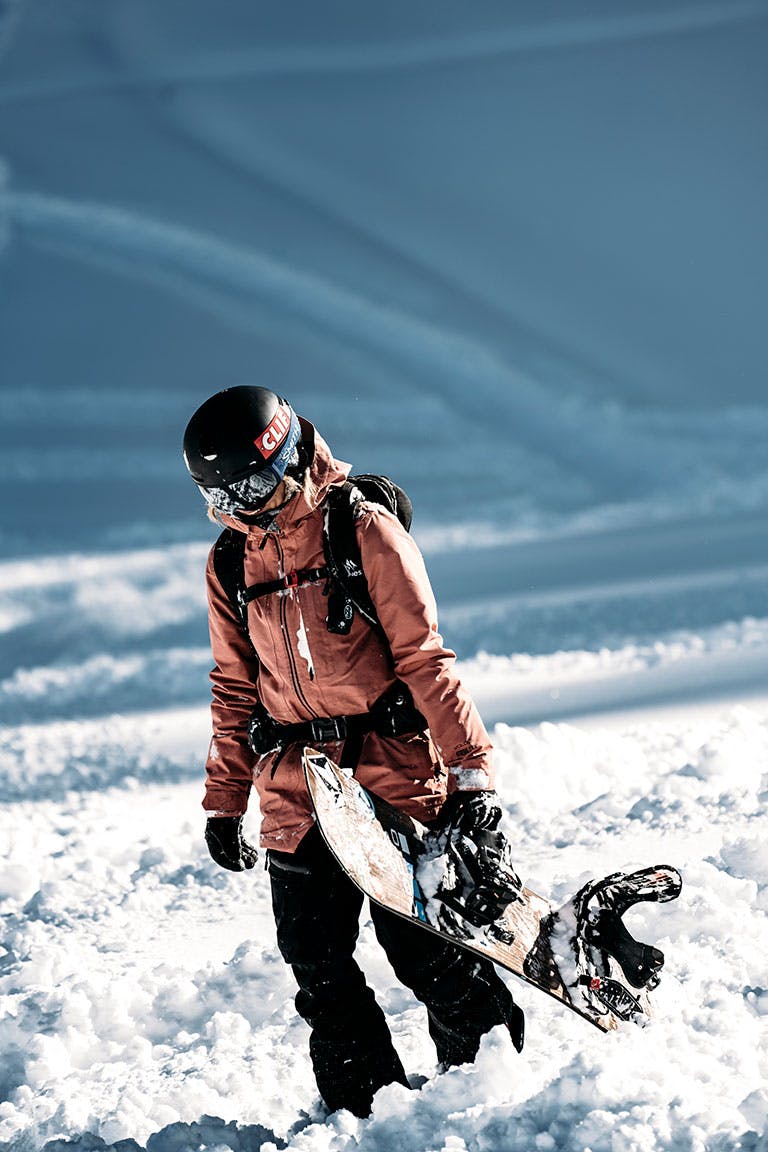The ideas and suggestions written below are provided for general educational purposes only and should not be construed as medical advice or care. The contents of this article are not intended to make health or nutrition claims about our products. Always seek the advice of a physician or other qualified health provider before beginning any physical fitness or health and nutrition related activity.
Skiing and snowboarding are some of the best things about winter. There’s nothing like heading to the mountains when they’re covered with fresh powder and tearing up the slopes on a beautiful day.
But while you pack your skis, board, helmet, and boots for your trip, remember to also bring the food you’ll need for the perfect day of snow. Give your body the fuel it needs to perform its best from the first run to the last.
We don’t mean a cup of coffee or energy drink; we mean the right nutrition to help your body handle hours of skiing and snowboarding. Read on for our powerful, easy-to-follow tips for great rides and great fun.
Eat a nutritious, satisfying breakfast
Fuel yourself before the day begins. Start your morning with a hearty breakfast with a combination of complex carbohydrates, protein, and fat. This way, you’ll give your body consistent energy and help prevent hunger pangs as you go through your first few runs.
For example, eat a big bowl of oatmeal (1 to 2 cups) topped with nuts and seeds (one tablespoon) and Greek yogurt (1/2 cup).
Don’t prioritize meal times
Most people schedule their meals in advance — i.e. lunch from 12:30 – 1:30pm — and ski and snowboard around those times. We recommend, however, you do the opposite: Make skiing and snowboarding the centerpiece of your day and eat when you’re hungry and feel like you need an energy boost.
It’s a small shift in priorities, but it can make all the difference.
Stay hydrated
Getting the right amount of fluids can make a huge difference in your energy level on the slopes — helping your muscles to work at their full potential and your mind to stay focused and alert. But if there’s no water fountain close by, you could go a long time without a sip. Don’t let dehydration sabotage your physical and mental ability.
For a great, easy-to-carry option, bring an insulated hydration pack with you as you ski or snowboard. (The insulation prevents water from freezing.)
Push back your lunch
Instead of going from breakfast to lunch without eating anything, pack some small, nutritious snacks to keep you energized. Having snacks on hand means you can push your lunch to a later time and capitalize on shorter lift lines while everyone else is at the restaurants.
For easy-to-pack quick snacks with energizing nutrition, keep some almonds, CLIF BAR® energy bars, or dried fruit in your pocket. CLIF BAR energy bar provides sustained energy before and during activities lasting over an hour. It delivers fast-acting and longer-lasting carbohydrates from sugars and organic rolled oats alongside smaller amounts of “good” fats (mono- and polyunsaturated) and plant-based protein to keep you skiing strong.
Get a little more sugar in the afternoon
Sugar?! (Yes, sugar.) Even with great hydration and nutritious snacks, a little sweetness in the afternoon can go a long way to give your muscles and mind a quick surge of energy so you can finish your day strong.
For those longer days on the mountain, easy-to-chew sources of quick carbohydrates like CLIF® BLOKS™ Energy Chews can give you the sports nutrition needed to sustain energy levels and give your muscles a boost during bouts of high-intensity skiing lasting longer than one hour.
Remember your recovery
After you've finished a long, fun, and tiring day on the slopes, it’s time for the après ski! But to repair your body (or have a few more days in a row of skiing), get good recovery foods after you’re done.
Thankfully, this doesn’t have to be difficult. As long as you eat a combination of carbs (like whole wheat pasta or bread), animal or plant-based protein (like meat, seafood, soy or nuts), and vegetables, your body will thank you. In this way, even a cheeseburger and a side of veggies counts as a helpful recovery meal.
References
- Sport nutrition: an introduction to energy production and performance; Asker E. Jeukendrup, Michael Gleeson Human Kinetics, 2004.
- American College of Sports Med, American Dietetic Assoc., Dietitians of Canada: Nutrition & Athletic Performance Joint Position Statement: Med Sci Sports & Exerc 2009; 709-731.
- Fueling athletes with carbs, 27th SCAN Symposium Chicago, March 11-13 2011 Burke
- Wong, S. H. S., Sun, F.-H., Huang, W. Y. J., & Chen, Y.-J. (2014). Effects of Beverages with Variable Nutrients on Rehydration and Cognitive Function. International Journal of Sports Medicine.


